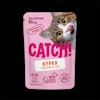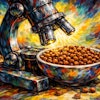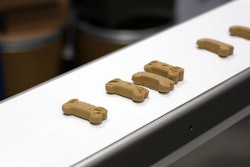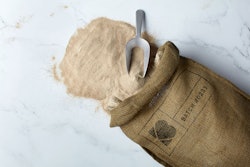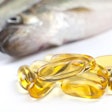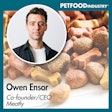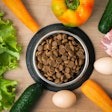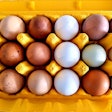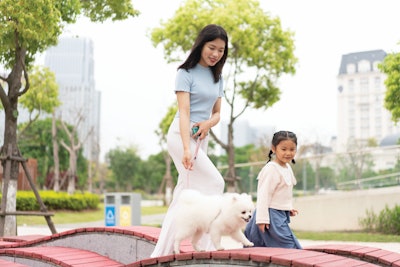
The pet food selections from China to Australia became more interesting in the final months of 2023. Egg-based proteins, tofu dregs, black soldier flies and silkworm pupae are now being added or mixed together, creating new products for key Asian markets that are increasingly demanding sustainable pet food ingredients.
Determined to bring down dogs' and cats' carbon footprints while keeping them healthier, innovative pet food companies from the Asia Pacific region are creatively exploring different food options that will lessen the industry's dependency on red meat. Here are some of the latest trend-setting developments in line with Asia's greener approach to pet food production.
Symrise and Sunner new alliance: A chicken-and-egg situation
In a strategic move to grab hold of the Asia Pacific pet food market, global flavor and fragrance giant Symrise partnered with China's leading poultry processor, Fujian Sunner Development Co. Ltd. (Sunner), in early 2023. The powerful collaboration has given both companies a foothold in the region's lucrative pet food market armed with their vision for sustainable pet food proteins made from chicken eggs.
Sunner has been producing chicken broilers for 40 years in 350 chicken farms across China that are all family-owned. Their annual 600-million-bird capacity ends up at fast food chains, food manufacturers and meat wholesalers. The partnership with Symrise marked the first time the company has attempted expanding its production capabilities in the sustainable pet food ingredients segment.
In 2022, Symrise consolidated some of its value-added egg products to form the Nutrios brand with egg and chicken solutions that can be used to create premium animal nutrition formulas. The products that will come out of the new partnership will be marketed under the Nutrios pet food brand. There's also a plan to build a new facility in China, with Symrise overseeing the majority of the operations management, and Sunner collaborating on production and marketing of sustainable egg-based proteins.
Singapore's PetCubes introduces Sustainable Formula dog food
Singapore's fresh pet food producer PetCubes has a new dog food called Sustainable Formula made from black soldier fly larvae and okara, a by-product of tofu.
Available for a limited time only, Sustainable Formula is formulated by PetCubes’ Director for Nutrition, Dr. Francis Cabana, who specializes in wildlife nutrition. It's also made possible through local partnerships with equally environmentally conscious partners like SoyNergy, which supplies the okara, and local startup Ento Industries, which provides the insect-based protein.
Black soldier flies deliver three times more protein than beef and double the protein content found in spinach. As dog food, it is an easily digestible meat substitute with 10% more Vitamin B12 than salmon, the company said.
The fiber-rich okara is a by-product of soymilk and tofu manufacturing that boasts multiple health benefits. SoyNergy has successfully fermented the low-value tofu dregs and turned them into a heat-stable, high-quality protein infused with probiotics to boost digestive health especially for adult dogs. One okara cube can host up to 4 billion live probiotics.
PetCubes said their Sustainable Formula is both pet- and planet-friendly as the ingredients help them reduce their reliance on traditional meat sources from livestock farming, which often contributes to deforestation, greenhouse gas emissions and overuse of resources.
The larvae and okara are gently cooked with all the essential amino acids that dogs need to thrive. The final product is 100% human-grade and has no GMO ingredients, food dyes, palatants, preservatives or fillers, according to the company. PetCubes said it even “surpasses AAFCO standards for dogs.”
PetCubes is also known for creating custom pet food that featured Malaysia's national dish, nasi lemak, and Singapore's beloved chicken rice.
Silkworm pupae now part of pet food chain in Taiwan
Silkworm pupae are now on the cat food menu in Taiwan after a team of animal nutritionists, food scientist experts and veterinary consultants successfully turned these food insects into a sustainable form of wet cat food. Launched in October 2023, it is marketed under the Munchee brand owned by Furtime Pet Food Co. Ltd.
The group of scientists from National Taiwan University and National Chung Hsing University worked with a research team from Miaoli under the Council of Agriculture to develop the silkworm pupae canned cat food. Miaoli is a place in Taiwan known for its functional silkworm.
Munchee develops and markets functional supplements for cats based on organic and ecologically friendly ingredients that can be found all around Taiwan such as salvia root, bananas, fish scale calcium and shell calcium. The new cat food using silkworm pupae also has traces of chicken and essence of milkfish, a tropical fish abundant in Taiwan, Philippines and Indonesia.
Silkworm pupae are rich in premium proteins and omega-3 fatty acids, and can be stimulated to produce antimicrobial peptides that can kill bacterial cells. Cats that eat Munchee canned food made from silkworm pupae stand to reduce the amount of bacteria in their guts by 7% to 15%, the company said.
By using silkworm pupae for their cat food, Munchee is also helping the silkworm pupae industry earn and invest back on preserving mulberry trees for silkworm farming. Eventually, having a sustainable ecosystem for pet food production will benefit not only the animals but also the consumers and the pet food industry at large, said Munchee.
Tetra Pak Australia packs new pet food line in carton with lowest CO2 footprint
The use of carton packaging with the lowest CO2 footprint in the market has become a major selling point for a new Australian line of pet food that promises maximum health benefits for pets and minimum trash for the planet.
Tetra Recart, the recyclable pet food packaging solution from Tetra Pak, is the packaging of choice for the new SPD (Single Protein Diet) product range from Prime100, a pet nutrition brand based in Melbourne, Australia. Prime100 wanted sustainable packaging that will ensure their products benefit both pets and the planet. Tetra Recart's technology can keep pet food fresh and safe at room temperature without the need for preservatives, and the cartons they used have six times less impact on the environment when compared to tin cans.
“This collaboration showcases our commitment to providing the best pet nutrition while prioritizing sustainability,” said Prime100 Chief Executive Officer Jason Gray. “We’re excited to witness the positive impact this collaboration will have on pets and their owners nationwide.”
Prime100's new slow-cooked SPD dog food offers a single source of protein for all types of dogs — at any life age and including those with food allergies. It is the very first pet food product that ushered Tetra Pak into Australia's pet food packaging market.
Boris Munster, Tetra Pak managing director for Australian and New Zealand, said they the company is thrilled “to see a homegrown pet food brand drive thought leadership in the category,” which hopefully will inspire more brands to switch to sustainable packaging and reduce their carbon footprints.
Used Tetra Recart can be sent to collection points for shipping to saveBOARD recycling facility where it will be turned into sustainable building materials for homes and offices.
